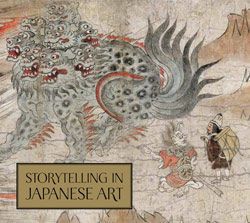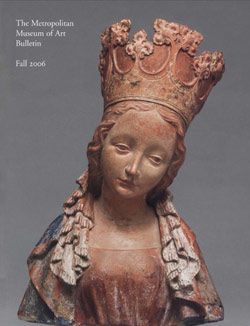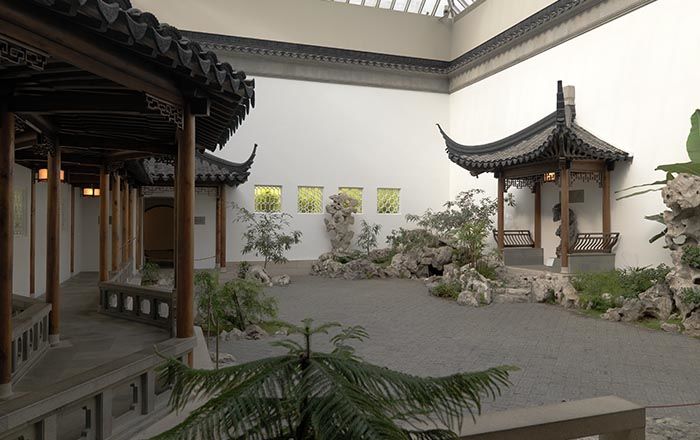Detached section from scroll one from A Long Tale for an Autumn Night (Aki no yo no nagamonogatari), now remounted in original position as part of 2002.459.1
Not on view
This scene, a detached section from a set of three illustrated narrative handscrolls (emakimono), presents the conclusion of the amorous tale of a Buddhist monk and his young acolyte, who in a previous scene has taken his own life by drowning. A procession for raigo-e, a ritual ceremony celebrating Amida Buddha and his retinue of bodhisattvas, descends and crosses a bridge to welcome the souls of the departed and guide them to paradise with music and song.
This image cannot be enlarged, viewed at full screen, or downloaded.



